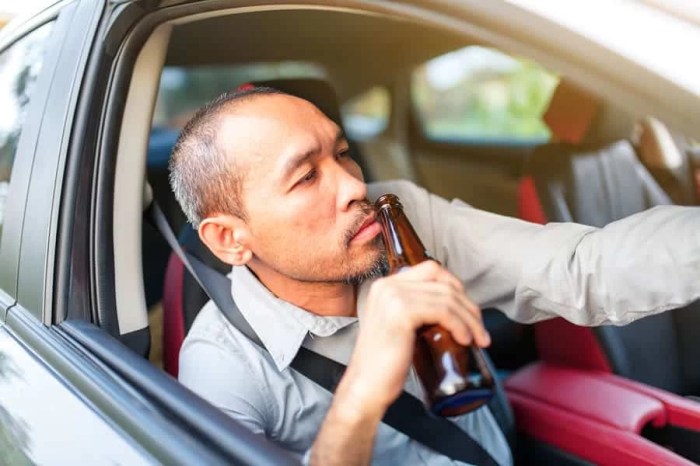First time DWI offenders over the age of 21 face a unique set of legal consequences and challenges. This article will explore the legal implications of a first-time DWI offense for individuals over 21, as well as the causes and risk factors that contribute to these offenses.
Additionally, we will discuss assessment and intervention strategies designed to address underlying issues and reduce recidivism, and provide an overview of rehabilitation programs and support services available to first-time DWI offenders over 21.
First Time DWI Offenders Over the Age of 21: Legal Implications
Driving while intoxicated (DWI) offenses have serious legal consequences, particularly for first-time offenders over the age of 21. In most jurisdictions, a first-time DWI conviction carries penalties that may include:
- Suspension or revocation of driver’s license
- Fines and court costs
- Jail time
- Community service
- Ignition interlock device (IID) installation
Additionally, DWI convictions can significantly impact insurance rates and employment prospects.
Causes and Risk Factors for First Time DWI Offenders Over the Age of 21

Various factors contribute to first-time DWI offenses among individuals over 21, including:
- Alcohol consumption patterns (e.g., binge drinking, excessive drinking)
- Social influences (e.g., peer pressure, lack of designated drivers)
- Personal circumstances (e.g., stress, fatigue, depression)
- Lack of awareness of the risks and consequences of DWI
- Overconfidence in driving abilities while intoxicated
Assessment and Intervention Strategies for First Time DWI Offenders Over the Age of 21

To effectively address first-time DWI offenses, assessments are conducted to evaluate the offender’s alcohol use patterns, risk factors, and underlying issues. Common assessment tools include:
- Substance Abuse Subtle Screening Inventory (SASSI)
- Alcohol Use Disorders Identification Test (AUDIT)
- Clinical interviews and observations
Based on the assessment results, evidence-based intervention strategies are tailored to address the individual’s needs. These strategies may include:
- Alcohol education and counseling
- Cognitive-behavioral therapy (CBT)
- Motivational interviewing
- Pharmacological interventions (e.g., naltrexone, acamprosate)
Rehabilitation and Support Programs for First Time DWI Offenders Over the Age of 21
Rehabilitation programs provide comprehensive support to first-time DWI offenders over the age of 21. These programs aim to promote recovery and prevent future offenses. Common components of rehabilitation programs include:
- Individual and group therapy
- Education on alcohol use and addiction
- Life skills training
- Support groups (e.g., Alcoholics Anonymous, Mothers Against Drunk Driving)
Participation in rehabilitation programs has been shown to significantly reduce recidivism rates among DWI offenders.
Social and Cultural Impact of First Time DWI Offenses Over the Age of 21

First-time DWI offenses over the age of 21 have a significant impact on society. These offenses contribute to:
- Increased traffic fatalities and injuries
- Financial burden on families and communities
- Stigma and discrimination against individuals with DWI convictions
- Erosion of public trust and confidence in drivers
Addressing the social and cultural factors that contribute to first-time DWI offenses is crucial for reducing their prevalence and impact.
Commonly Asked Questions: First Time Dwi Offenders Over The Age Of 21
What are the legal penalties for a first-time DWI offense for individuals over 21?
Penalties for a first-time DWI offense for individuals over 21 can vary depending on the state, but typically include fines, license suspension, and mandatory alcohol education classes.
What are some of the common causes and risk factors for first-time DWI offenses among individuals over 21?
Common causes and risk factors for first-time DWI offenses among individuals over 21 include alcohol consumption patterns, social influences, and personal circumstances such as stress or depression.
What are some of the assessment tools and methods used to evaluate first-time DWI offenders over 21?
Assessment tools and methods used to evaluate first-time DWI offenders over 21 include interviews, questionnaires, and standardized tests to assess alcohol use, driving history, and other relevant factors.
What are some of the evidence-based intervention strategies designed to address underlying issues and reduce recidivism among first-time DWI offenders over 21?
Evidence-based intervention strategies designed to address underlying issues and reduce recidivism among first-time DWI offenders over 21 include cognitive-behavioral therapy, motivational interviewing, and peer support groups.
What are some of the rehabilitation programs and support services available to first-time DWI offenders over 21?
Rehabilitation programs and support services available to first-time DWI offenders over 21 include outpatient treatment, residential treatment, and support groups such as Alcoholics Anonymous (AA).